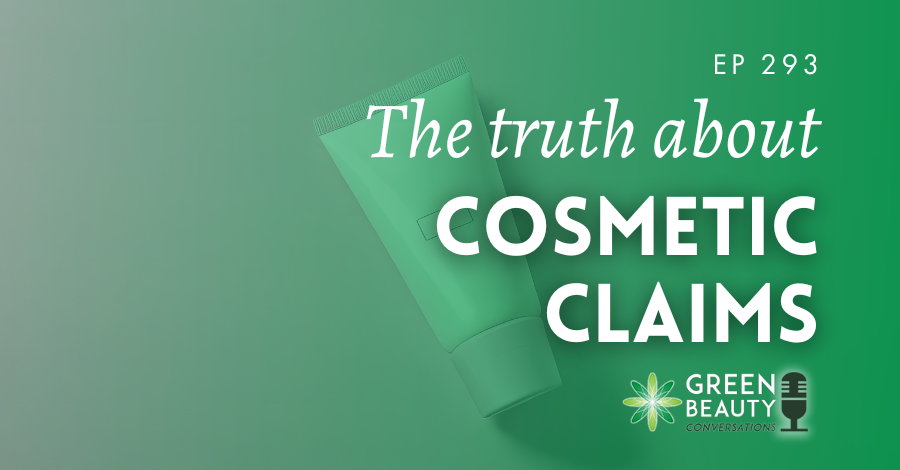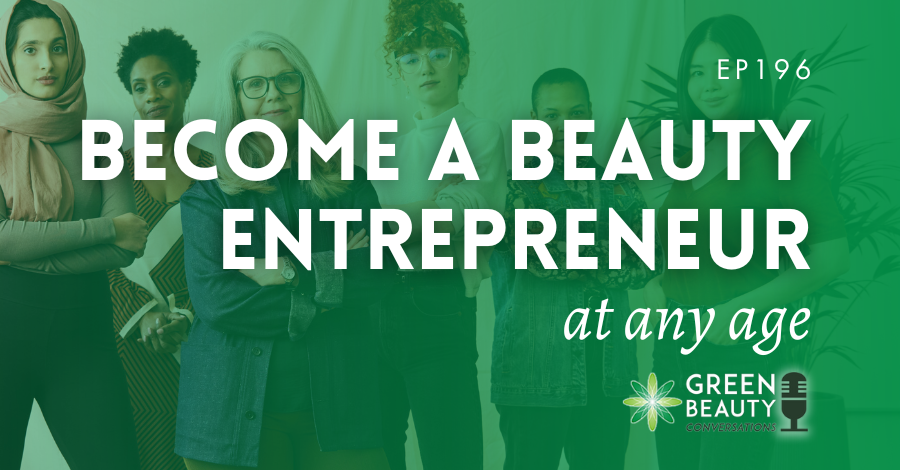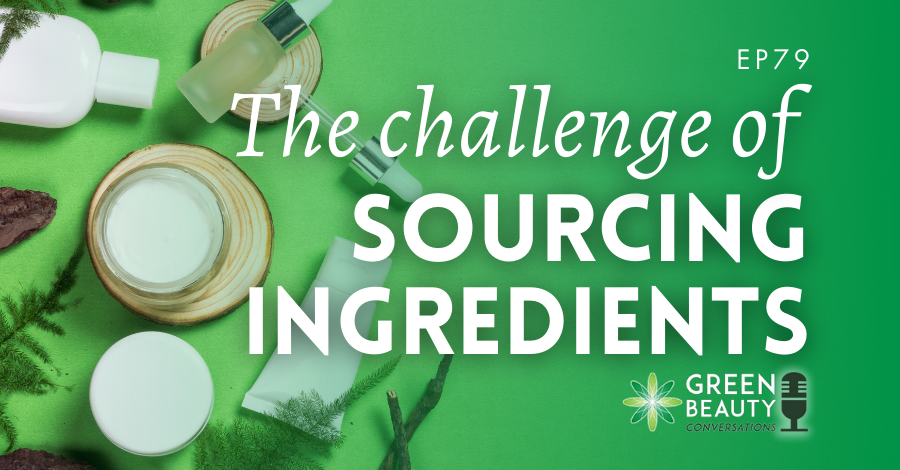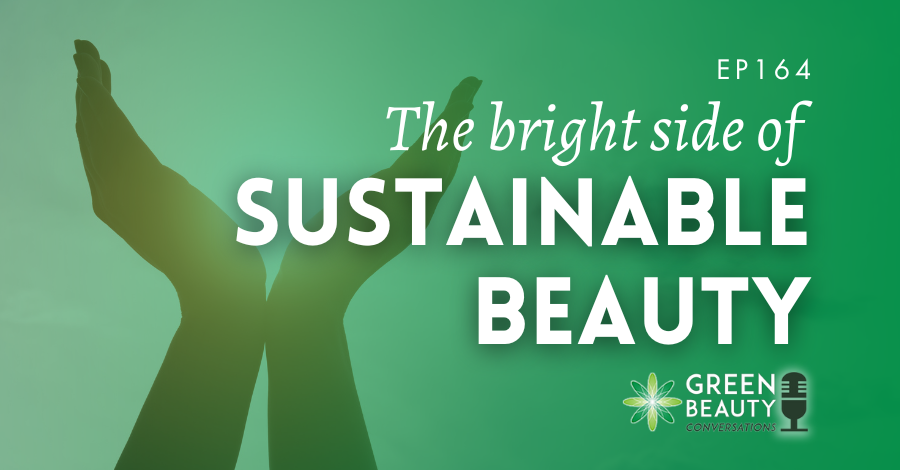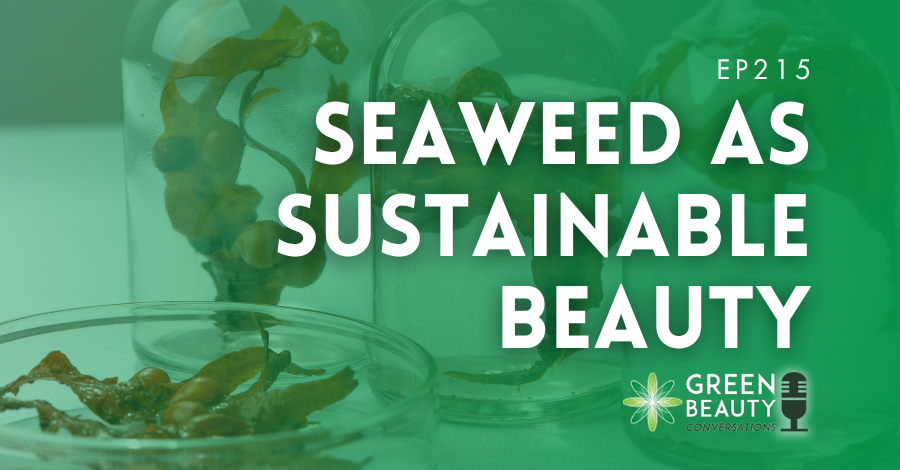We’re surrounded by beauty products that promise to smooth, nourish, detoxify, or even transform our skin. But how many of these cosmetic claims actually stand up to scrutiny?
Behind every glossy ad or product description lies a fine line between creative marketing and strict regulation – and far too often, brands blur that line. In this episode of Green Beauty Conversations, Lorraine Dallmeier, CEO of Formula Botanica, cuts through the jargon to uncover the truth about what brands really can and can’t say.
For centuries, the beauty industry has relied on seductive adjectives to sell products. From “anti-ageing” to “chemical-free” to “clean,” we’ve been conditioned to expect bold promises.
Yet for formulators and brand founders, these claims carry serious risks – legal, ethical and reputational. Get them wrong, and you could end up misleading consumers, losing credibility, or even facing regulatory action.
Joining Lorraine in this episode is Dr Theresa Callaghan, PhD biochemist, cosmetic claims expert and author of Help! I’m Covered in Adjectives*.
With over 37 years in the cosmetics industry, Theresa explains why cosmetic claims matter, how brands can avoid common pitfalls, and why substantiating your claims isn’t just about compliance – it’s about building trust and longevity.
If you want to create a beauty brand that’s credible, ethical and future-proof, you can’t afford to miss this episode.
“A cosmetic claim is a tool – it’s the story you tell to sell your product – but that story must be honest, transparent and compliant if you want your brand to thrive.” — Dr Theresa Callaghan
In this episode with Dr Theresa Callaghan, you will hear:
- What cosmetic claims really are: Theresa breaks down why cosmetic claims are more than just words on a label. From text and images to packaging and design, every part of your product communication can count as a claim, and all must meet strict criteria to stay compliant.
- The clash between indie passion and regulation: Many indie founders enter beauty with a mission to care for skin health. But Theresa explains why talking about “healing” or “treating” can cross into the territory of medical claims, and how indie brands can navigate this tension without losing their authenticity.
- How big and small brands get it wrong: From global giants making overblown promises to indie start-ups misusing medical terms, no one is immune. Theresa shares real-world examples of misleading cosmetic claims and the risks for beauty brands that ignore legislation.
- Why greenwashing is the new frontier of claims: The conversation explores the shift from “free from” marketing to sustainability claims, and why “eco,” “natural”, and “green” need just as much substantiation as performance claims.
- How to future-proof your beauty brand: Theresa offers practical advice for indie founders, including why to start with soft claims, how to run affordable consumer perception studies, and why investing in testing is an investment in the long-term credibility of your business.
Key takeouts include:
- Cosmetic claims must avoid health or medical language: Theresa explains that brands must steer clear of medical terms such as “anti-inflammatory,” “healing,” or “acne treatment.” These fall under drug or medical device legislation. Instead, focus on benefits like hydration, comfort, or smoothness, which communicate results without straying into prohibited territory.
- Compliance is global – but not always harmonised: While the EU’s six criteria for cosmetic claims set the international benchmark, Theresa highlights how countries like the US are still catching up. If you comply with EU standards, you are likely compliant elsewhere, but the lack of global harmonisation creates confusion and misinformation that ultimately harms consumers and brands alike.
- Greenwashing is a claims issue, too: From “sustainable” packaging to “eco” formulas, sustainability claims are under increasing scrutiny. Theresa stresses that these cannot be treated in isolation and must be backed up with robust evidence, just like performance claims. Legislation is emerging, but many brands are still treating greenwashing as someone else’s problem.
- Investing in substantiation builds trust and longevity: Many founders shrink at the cost of testing, but Theresa reframes it as an essential investment in brand credibility. From simple patch tests to consumer perception studies, there are scalable ways to substantiate claims. Doing this properly helps avoid regulatory pitfalls and strengthens consumer trust.
- Transparency and consumer education are key: The industry must move towards clearer, more realistic communication. Theresa argues that educating consumers about what cosmetics can and can’t do reduces misinformation and raises expectations in line with reality.
Meet our guest: Dr Theresa Callaghan, PhD Biochemist and Founder of Callaghan Consulting International

After a postdoctoral fellowship at the Pasteur Institute, she moved into corporate skincare research. In 2008, she founded Callaghan Consulting International, focusing on cosmetic claims and scientific advancements, collaborating with ingredient suppliers and brands.
A widely published author, Theresa is known for her multilingual book, Help! I’m Covered in Adjectives* (2nd edition). She is also on the editorial board of the International Journal of Cosmetic Science and actively participates in professional societies like SCS, SCANCOS, and the British Herbal Medical Association.
Theresa writes a monthly Claims Insights column for Euro-Cosmetics magazine and LinkedIn, and contributes to BEAUTYSTREAMS. Recognised as a key influencer, she was voted a top influencer by Covalo and LinkedIn earlier this year.
Find out more about Theresa Callaghan and Callaghan Consulting:
- Website: Callaghan Consulting
- Books: Help! I’m Covered in Adjectives (second edition), Oh! Cosmetic Claims: A Poet’s Lament – all available via Formula Botanica’s Amazon storefront*
- LinkedIn newsletter: Theresa Callaghan – Claims Insights
- Social media: @beautyclaimsinsights | @cosmet_claims | LinkedIn
* Full affiliate disclosure: The links to books in this post are affiliate links. This means that if you click a link and make a purchase, we may earn a small commission at no extra cost to you. We only recommend products we genuinely believe in. As an Amazon Associate, we earn from qualifying purchases.
Related episodes:
- Episode 63: Parabenoia – How parabens started the indie beauty movement
- Episode 219: Why beauty brands are getting sued for sustainability claims
- Episode 220: Tom’s of Maine sustainability claims lawsuit
- Episode 221: Exploring the EU greenwashing ban for beauty
- Episode 222: Bye-bye beauty greenwashing
Thank you for joining us for this episode of the Formula Botanica Green Beauty Conversations podcast. If you enjoyed listening, please share, subscribe and review this episode on Apple Podcasts, Spotify or Youtube so that more people can enjoy the show. Don’t forget to follow and connect with us on Facebook and Instagram.
FREE TRAINING
Learn how to become an
Organic Skincare Formulator
FREE TRAINING
How to become an
Organic Skincare Entrepreneur
FREE TRAINING
How to become an
Organic Skincare Entrepreneur
Leave us a comment
Lorraine Dallmeier is a Biologist, Chartered Environmentalist and the CEO of Formula Botanica, the award-winning online organic cosmetic science school. Read more about Lorraine and the Formula Botanica Team.

